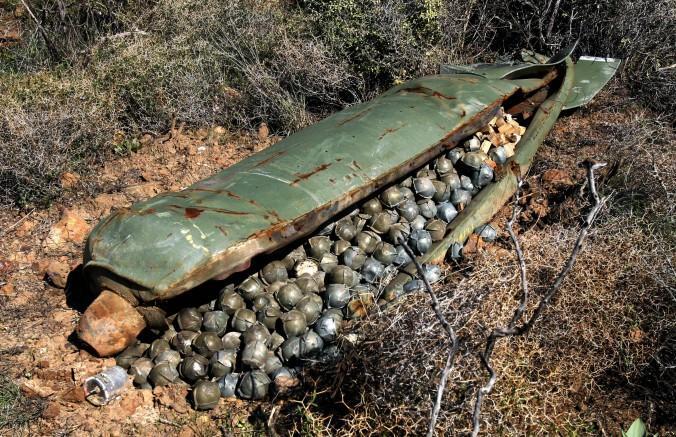
Israel Warns Public About Unexploded Bombs
In a rare and alarming development, Israel has issued a public warning about the presence of unexploded bombs in the aftermath of a recent missile strike. The warning comes after Iran launched a missile with a cluster bomb warhead, marking the first known use of such weapons in the conflict.
According to reports, the missile strike occurred on the Israel-Lebanon border, causing widespread destruction and panic. The use of cluster bombs, which are designed to release multiple small bombs or submunitions over a wide area, has raised concerns about the potential for unexploded ordnance to remain on the ground.
In response to the situation, Israel’s Home Front Command has issued a statement urging civilians not to touch fallen objects from the missile strike. The command advises that these objects may be unexploded submunitions, which can be extremely dangerous if handled improperly.
“Any object that fell from the sky, especially objects that made a hissing or whistling sound, could be a submunition,” the command stated. “Do not touch it or try to move it. Report any suspicious items to the emergency services immediately.”
The warning is not an exaggeration. Cluster bombs are designed to release dozens or even hundreds of small bombs over a wide area, which can be difficult to detect and clear. The submunitions can remain live for weeks or even months after they are dropped, posing a significant risk to anyone who comes into contact with them.
The use of cluster bombs is banned in many countries due to their indiscriminate nature and the risk they pose to civilians. However, Iran has been accused of using cluster bombs in the past, and the recent strike is likely to escalate tensions in the region.
The incident is not the first time that Israel has been targeted by Iran’s military. In the past year, there have been several reported incidents of missile attacks on Israeli territory, including one in February that caused significant damage to a town in northern Israel.
The use of cluster bombs is particularly worrying due to the risk they pose to civilians. The submunitions are designed to explode on impact, which can cause significant damage and injury to anyone in the surrounding area. The use of these weapons is banned in many countries due to their indiscriminate nature and the risk they pose to civilians.
In addition to the risk posed by the submunitions, the use of cluster bombs also poses a significant risk to the environment. The bombs can release toxic chemicals and other pollutants into the air and water, which can have long-term consequences for the environment and human health.
The recent incident is likely to raise concerns about the use of cluster bombs in the conflict. The weapons are banned in many countries due to their indiscriminate nature and the risk they pose to civilians. However, some countries continue to use them, citing their effectiveness in military operations.
The use of cluster bombs is a controversial issue, with some countries arguing that they are necessary for military operations, while others argue that they are banned for a reason. The weapons are designed to release multiple small bombs or submunitions over a wide area, which can cause significant damage and injury to anyone in the surrounding area.
In conclusion, the recent missile strike by Iran on Israel has raised concerns about the use of cluster bombs in the conflict. The weapons are banned in many countries due to their indiscriminate nature and the risk they pose to civilians. Israel’s Home Front Command has urged civilians not to touch fallen objects from the missile strike, advising that they may be unexploded submunitions. The incident highlights the need for countries to work together to ban the use of cluster bombs and to protect civilians from the risks they pose.
Source:
https://thecsrjournal.in/what-cluster-bomb-missile-iran-fired-at-israel/






